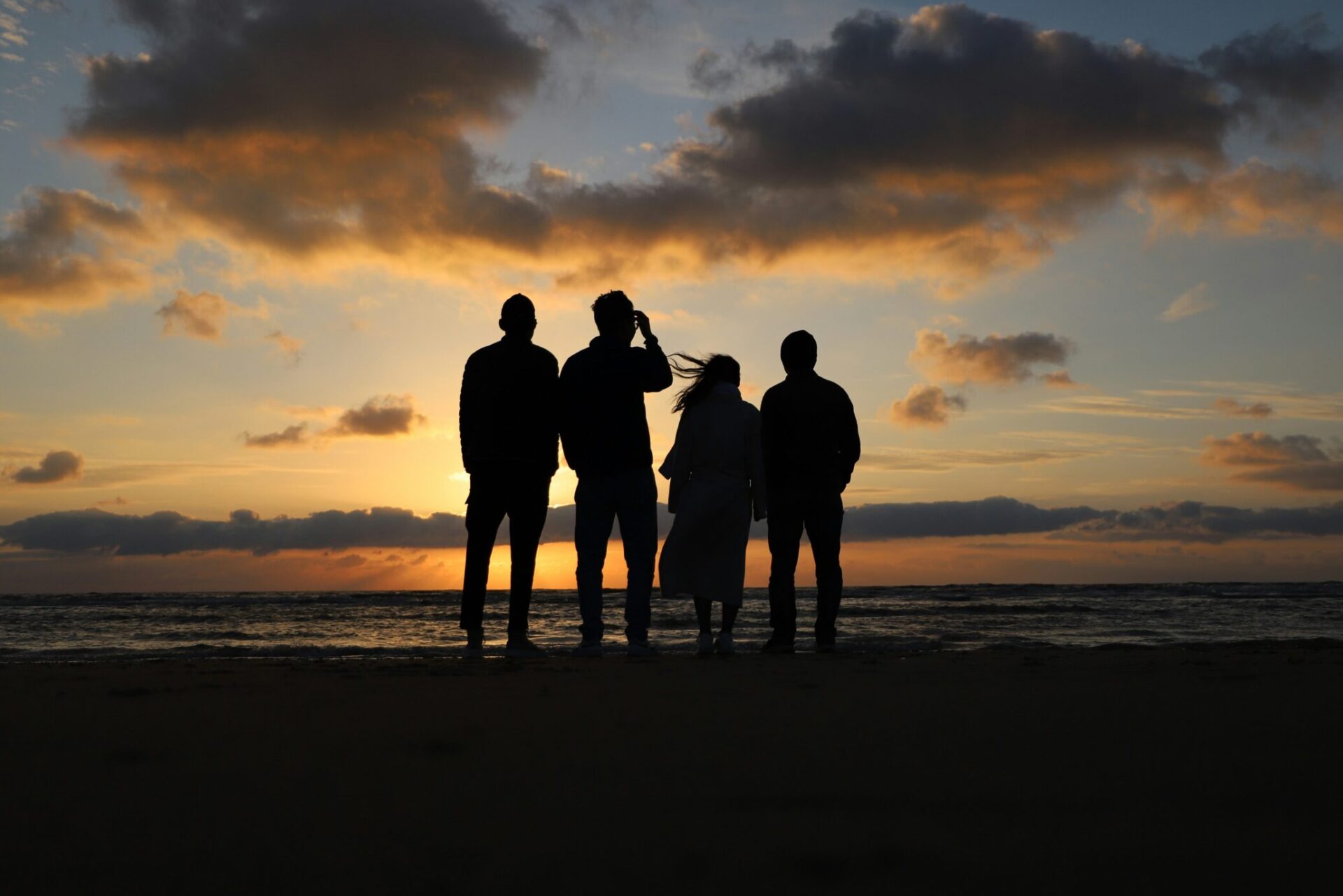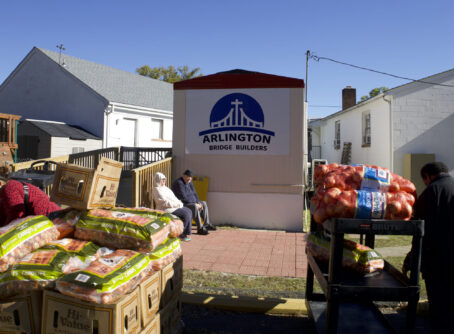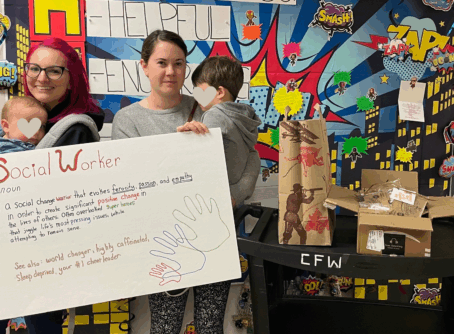
To read the full research behind this op-ed, visit our 2025 Hatfield Prize page here.
Advocates for religious freedom celebrated a July 2025 decision by the U.S. Ninth Circuit Court of Appeals in a case regarding an Oregon policy disqualifying otherwise eligible parents from fostering or adopting because of their religious beliefs. The case was argued before the federal circuit court in July 2024.
At issue was Oregon’s requirement that foster and adoptive parents “respect, accept, and support” a child’s gender identity and sexual orientation. This includes using preferred pronouns, attending pride events, providing clothing that matches the child’s preferred identity, and in some cases, driving the child to gender-transition appointments. Oregon hardly stands alone; similar laws have been passed in a handful of other states, including Vermont, Massachusetts, and Washington. On a federal level, the Biden Administration likewise narrowed the definition of child safety to be synonymous with affirmation and active endorsement of a child’s expression of their sexuality or gender identity. As a result, licenses have been revoked from parents, many of whom have already fostered and adopted multiple children within the state, because of their traditional views on gender and sexuality.
These policies are a good-faith effort at protecting LGBTQ youth, who continue to be overrepresented in the foster care system and face increased risks for homelessness and adverse health outcomes. State and federal lawmakers are right to take intentional steps to care for LGBTQ youth.
However, the approach adopted by the Biden administration and the aforementioned states is misguided for at least two reasons: it egregiously ignores First Amendment rights and alarmingly shrinks the number of foster and adoptive parents. As Jedd Medefind, President of the Christian Alliance for Orphans, notes, withholding foster certification and placement from those diverging from the state’s narrow definition of safety precludes faith-based organizations and individuals that hold to a different understanding of what safety entails from caring for and working with LGBTQ children.
First, these policies offend First Amendment principles of speech and expression by categorically denying licensure to parents with certain religious beliefs. The policies compel speech, requiring prospective foster and adoptive parents to agree with the state’s gender ideology. Furthermore, the policies restrict speech, since prospective foster parents are incentivized to withhold their beliefs on gender and sexuality if they want to participate in the foster care system. By compelling and restricting speech based on content, the state engages in viewpoint discrimination. Oregon unconstitutionally requires that prospective foster and adoptive parents choose between their genuine desire to foster or adopt and expressing their sincerely-held religious beliefs.
Furthermore, these policies disregard First Amendment free exercise norms. Both parents and faith-based organizations are often motivated by their religious convictions to engage in the difficult work of foster care and adoption, including for LGBTQ youth. The state wrongly stifles the religious exercise of these parents by precluding them from participation.
These policies are almost sure to run afoul of existing Supreme Court precedent in light of Fulton v, City of Philadelphia, a 2021 foster care case that balanced similar LGBTQ and first amendment claims but relating to foster care agencies. In Fulton, the high Court unanimously ruled that the City’s refusal to renew the contract for Catholic Social Services on the basis that they denied certification to same-sex foster parents violated the free exercise clause of the First Amendment. The Court held that the City’s actions burdened the agency’s religious exercise by putting a choice between certifying same-sex couples and fulfilling its mission as a faith-based nonprofit. The state policies excluding conservative parents from fostering present a similar unconstitutional choice between exercising sincerely-held religious beliefs and participation in foster care.
Second, these policies hurt the foster care system by narrowing the pool of prospective foster parents. These policies exclude people of traditional religious views (including many Christians, Muslims, Orthodox Jews, and others) from participating in the child welfare system through fostering or adopting. Research shows that faith plays an important role in an individual’s openness to fostering and adopting. For example, a 2024 Bipartisan Policy Center (BPC) poll found that Christians are twice as likely to foster or adopt compared to non-Christians and are more willing to care for older children, sibling groups, and children with special needs. BPC concluded that “values held by people of religion and faith are an essential ingredient to child welfare in America.”
These policies wrongfully prevent the very people who are more likely to foster and adopt from participating in the system. By excluding a portion of potential foster parents, states risk significantly decreasing the numbers of foster and adoptive homes.
At a time when there are approximately 570,000 children in foster care across the country, there’s a greater need for foster parents. It is imperative to serve the needs of these vulnerable children by seeking the broadest pool of eligible foster parents possible. Eligibility requirements are usually determined at the state level. New, ill-advised policies include prospective foster parents’ sincerely-held religious views as a component of eligibility, which can categorically disqualify them from being recognized as a safe home.
States seeking to protect LGBTQ youth in the foster care system can do so without automatically disqualifying parents with conservative views. Jedd Medefind suggests a matching approach where LGBTQ youth are matched with families who are eager to provide the specific support those children need. Most states utilize a matching approach for other characteristics of foster children, including disability status, age, and sex. Why not expand this policy to LGBTQ youth and foster parents with traditional views on gender? To ensure that LGBTQ youth are in a safe environment, states could implement a matching protocol between LGBTQ youth and supportive foster parents.
Rev. Dr. Marian Edmonds-Allen, a member of the LGBTQ community and a person of faith, advocates for another approach that helps faith-based foster families navigate having an LGBTQ youth placed with them: “To exclude parents because they are faith-based is not in the best interest of LGBT young people. Faith-based parents and homes do not mean that they wouldn’t be terrific foster care placements for LGBT young people.” Supporting an LGBTQ foster child is not the same as “affirming;” Edmonds-Allen asserts that a home can be loving and nurturing without agreeing with the child’s gender identity or sexual orientation. She is currently developing an initiative entitled Faith, Hope, and Love (FHL) to help equip conservative, faith-based homes to care for LGBTQ youth.
Over the past ten years, Jamie and Mike, a couple from West Michigan, have lived out these principles by fostering over twenty youths, specializing in caring for teen girls, including several foster daughters who identified as LGBTQ. Jamie explained that their family’s traditional views on marriage and sexuality did not prevent them from building trusting relationships with their girls. “Just because I’m conservative doesn’t mean I can’t engage in this space well,” she said. “We have great relationships with our girls who don’t agree with us; we don’t have to agree on everything for me to support them. We aren’t trying to convert kids or change the ways they think about things, but instead build trust.”
Caring for LGBTQ young people has not required Mike and Jamie to deny their religious beliefs. They continue to attend a church with conservative views on marriage and maintain their traditional beliefs on gender and sexuality. Jamie recounted that one of their foster daughters who identified as a lesbian described being welcomed into their family as a “profound” experience. The young woman expressed, “I know you don’t agree with me, and yet you have loved me so well.” Jamie emphasized that above all, each child is a human created in the image of God with inherent value, deserving of support and care. “Though we may have traditional views, we as Christians are called to engage well with this space,” she explained.
The Oregon policy precludes couples like Jamie and Mike from meeting an essential foster care need in their communities. Oregon needlessly prevents children from accessing homes like these where they could thrive. In its July 2025 decision, the Ninth Circuit struck down the Oregon policy, finding that it violated the First Amendment. This ruling is a critical step toward protecting both religious freedom and the best interests of children in the foster care system. Moving forward, state legislatures should pursue pluralistic policies that both safeguard LGBTQ youth and empower parents with sincerely held religious beliefs to meet the needs of waiting children.
Noel Vanderbilt is from Saugatuck, Michigan, She graduated from Hope College in 2025 with a degree in Political Science and English with a creative writing emphasis. Her experience as a foster and adoptive sibling motivated her desire to study and advocate for family-supportive policies. She is passionate about using writing as a tool to reflect on culture, promote justice, and advocate for change. She aspires to continue her education at the intersection of law and policy.
Photo by Aliya Amangeldi on Unsplash.



